Find A Professional
More Items From Ergsy search
-
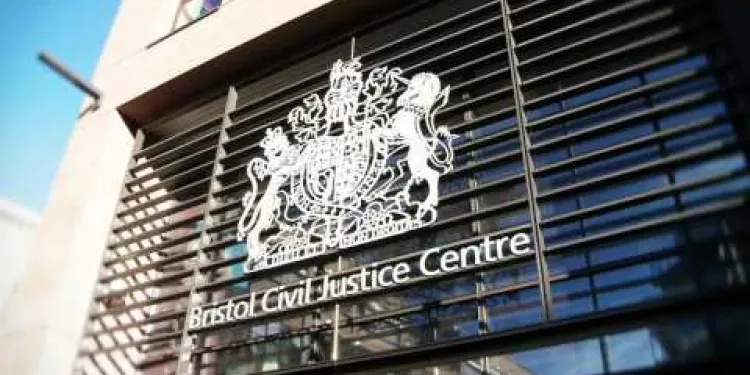
The Family Court without a Lawyer - Video 1 of 3
Relevance: 100%
-

The Crown Court
Relevance: 81%
-
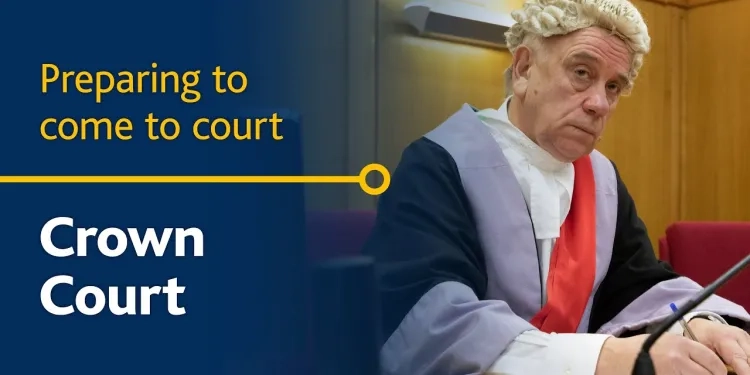
Crown Court - Preparing to come to court
Relevance: 75%
-
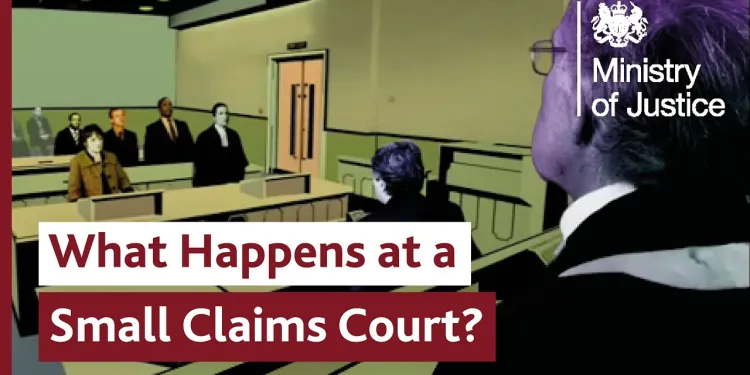
What Happens at Small Claims Court? Making a Court Claim for Money
Relevance: 50%
-

The Family Court without a Lawyer - Video 2 of 3
Relevance: 41%
-

How to represent yourself in family court in England and Wales
Relevance: 40%
-

Court of Protection
Relevance: 39%
-

The Family Court without a Lawyer - Video 3 of 3
Relevance: 39%
-

The Family Court without a Lawyer
Relevance: 35%
-

Magistrates in the Family Court: A Private Law Case
Relevance: 25%
-

Divorce Step By Step - Form E - Capital
Relevance: 25%
-

Magistrates in the Family Court: A Public Law Case
Relevance: 25%
-

How can I prepare for an eviction court hearing?
Relevance: 23%
-

Can I appeal a court's eviction decision?
Relevance: 22%
-
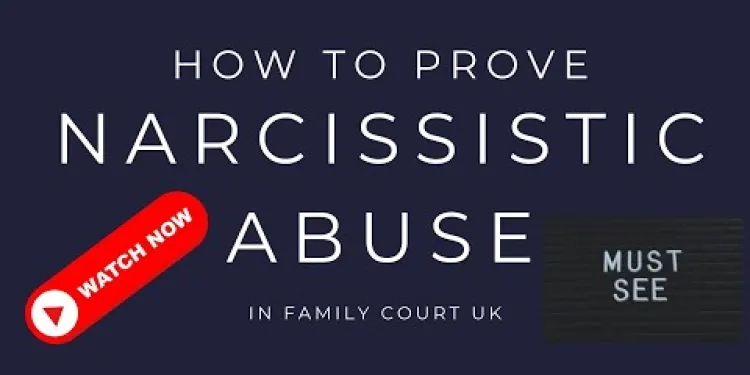
How To Prove Narcissistic Abuse In Family Court UK
Relevance: 19%
-

Supreme Court Delivers Key Ruling on Electoral Reform
Relevance: 19%
-
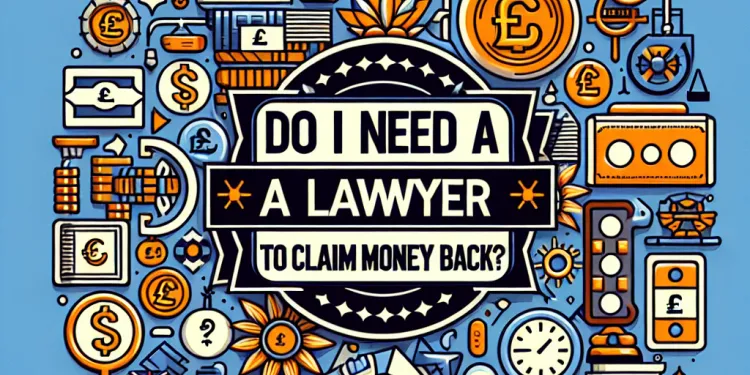
Do I need a lawyer to claim money back?
Relevance: 18%
-

Navigating Child Custody and Visitation Rights in Modern UK
Relevance: 17%
-
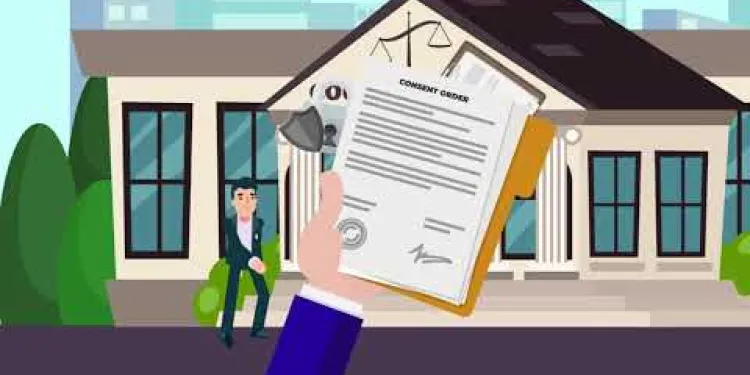
The 4 Steps to Agree a Financial Settlement on Divorce UK
Relevance: 16%
-

Divorce UK (England and Wales) | UK Divorce Process and Overview Explained PART 1 | BlackBeltBarrister
Relevance: 16%
-

Navigating Legal Guardianship and Parental Responsibility in the UK
Relevance: 16%
-

Navigating Child Custody Laws in the UK
Relevance: 15%
-

Understanding Your Rights in Divorce Proceedings
Relevance: 14%
-

A Guide to the Divorce Process
Relevance: 13%
-

Is mediation an option to resolve eviction disputes?
Relevance: 13%
-
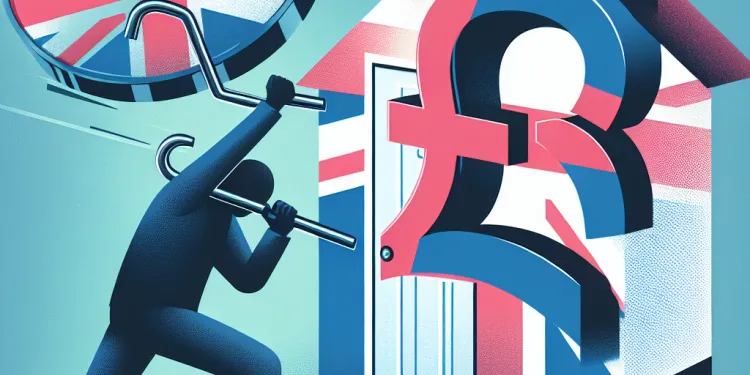
How can I contest or challenge the eviction?
Relevance: 13%
-

Child Care Proceedings | Family Law
Relevance: 13%
-

What happens if I stay beyond the eviction deadline?
Relevance: 13%
-

Understanding Your Rights During Divorce Proceedings in the UK
Relevance: 12%
-

Ultimate Guide to Financial Disclosure on Divorce in the UK
Relevance: 12%
-

I'm Getting a Divorce | Tips From a Divorce Lawyer
Relevance: 10%
-

High Court Rules on Controversial Data Privacy Case
Relevance: 10%
-
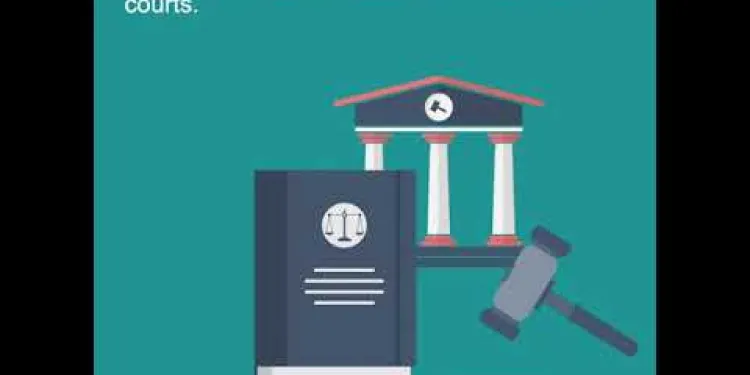
The Human Rights Act
Relevance: 10%
-

What should I do if I can't afford a lawyer for the eviction process?
Relevance: 10%
-
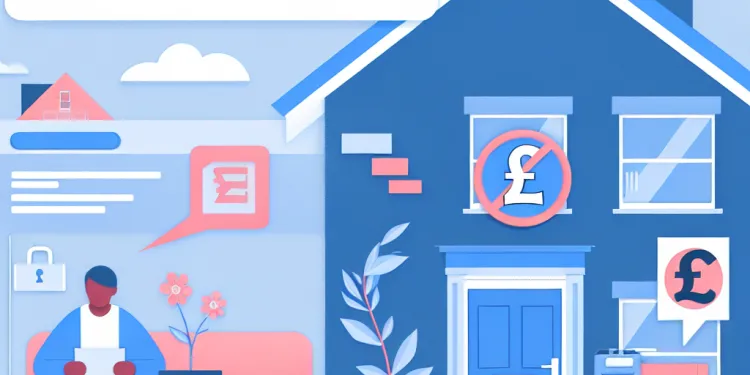
What can I do if my landlord wants to evict me?
Relevance: 10%
-

Can I stop an eviction if I catch up on rent payments?
Relevance: 10%
-

What should I do if I receive an eviction notice from my landlord?
Relevance: 10%
-
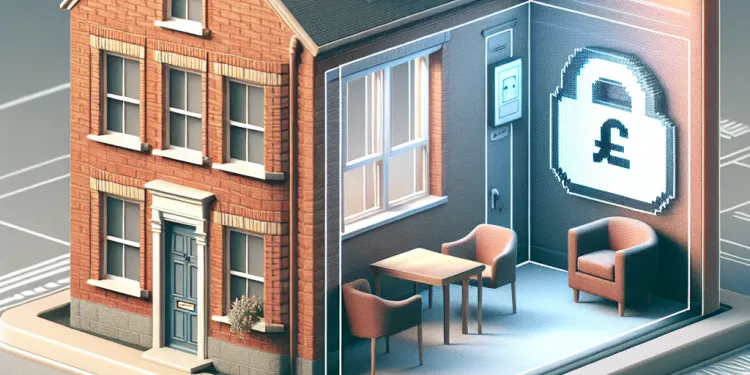
Can a landlord lock me out or remove my belongings to evict me?
Relevance: 9%
-

How long do I have to move out after receiving an eviction notice?
Relevance: 9%
-

Handling Inheritance Disputes Legally
Relevance: 9%
Preparing to Come to Crown Court
Understanding Crown Court Proceedings
The Crown Court in the United Kingdom handles serious criminal cases, including indictable offences and appeals from Magistrates' Courts. Understanding the nature of these proceedings is crucial. Trials are usually conducted before a judge and a jury, with the judge overseeing legal matters and the jury deciding the verdict.
Receiving a Summons or Notification
If you are required to attend Crown Court, you will receive a summons or notification detailing the date, time, and venue of the court session. It is important to read these documents carefully and take note of the instructions provided.
Legal Representation
Legal representation is highly recommended for Crown Court cases given their complexity. You may choose to hire a solicitor or barrister to represent you or, if eligible, apply for legal aid. A legal representative will guide you through the preparation and presentation of your case.
Document Preparation
Ensure all relevant documents are prepared and organized. This includes witness statements, character references, and any evidence being presented. Your solicitor or barrister will typically assist in compiling these documents and ensuring they are ready for submission.
Understanding Court Etiquette
Understanding and adhering to court etiquette is essential. This includes dressing appropriately in smart or formal clothing, addressing the judge as “Your Honour,” and behaving respectfully throughout the proceedings. Punctuality is also critical; arriving late may have serious repercussions.
Preparing for Testimony
If you are required to give testimony, it's crucial to be well-prepared. Practice your statement, focus on facts, and remain composed under questioning. Your legal representative will help you prepare, ensuring you understand the procedure and what to expect.
Transport and Logistics
Plan your transport to the court in advance. Ensure you know the location, the route, and allow extra time for any potential delays. Consider parking facilities or public transportation options to avoid last-minute stress.
Support Services
Various support services are available for those attending Crown Court. Witness support services provide emotional and practical assistance, while legal advice helplines can offer additional guidance. Utilize these resources to help manage the legal process effectively.
After the Court Session
Post-session, understand the potential outcomes and next steps. Whether it's awaiting a verdict, preparing for sentencing, or filing an appeal, knowing what to expect will help you plan accordingly. Your legal representative will provide necessary guidance based on the court's decisions.
Preparing to Come to Crown Court
Attending Crown Court can be a daunting experience, whether you are a defendant, witness, or juror. Proper preparation can help ease anxieties and ensure that you fulfill your role effectively. This guide provides essential information for those preparing to come to Crown Court in the United Kingdom.
Understanding Your Role
Before attending Crown Court, it is crucial to understand your specific role. If you are a defendant, you should communicate closely with your legal representative to understand the charges and prepare your defense. Witnesses should review any statements they have given and clarify their role in the proceedings. Jurors will receive a summons with instructions and should prepare for their civic duty by becoming familiar with the process.
What to Bring
All participants should bring essential documents related to the case, such as identification, court summons, or legal documents. Defendants should bring any evidence their legal team requires. Likewise, witnesses might need supporting documents or evidence to present in court. Jurors simply need their summons and a form of identification. In general, it is advisable to bring writing materials to take notes if necessary.
Dress Code and Etiquette
The Crown Court maintains a formal environment, and participants should dress accordingly. Smart, respectable attire is recommended. It is important to behave respectfully at all times, refraining from any disruptive behavior. During proceedings, it is crucial to follow the court's instructions and remain silent unless addressed by the judge or legal professionals.
Travel and Time Management
Plan your journey to the court in advance, allowing adequate time for travel. Be aware of any public transport schedules and potential delays. Arriving early is advisable, as it gives you time to compose yourself and locate the courtroom. Familiarizing yourself with the court's layout ahead of time can also be beneficial.
Support and Resources
For those who feel anxious about attending court, the Witness Service offers emotional and practical support. Legal professionals are also available to provide guidance and answer any questions you might have. If you’re a juror, the jury officer can assist with any logistical or procedural queries.
Preparing for your visit to Crown Court in the UK involves understanding your role, gathering necessary documents, dressing appropriately, managing your time, and seeking support if needed. By following these guidelines, you can approach the court with confidence and clarity.
Preparing to Come to Crown Court
What Happens at Crown Court?
The Crown Court in the UK deals with big crimes. A judge and a jury are in charge. The judge looks after the rules, and the jury says if someone is guilty or not.
Getting a Letter to Come to Court
If you need to go to Crown Court, you will get a letter. This letter tells you when and where to go. Read it carefully and follow what it says.
Getting a Lawyer
It is a good idea to have a lawyer if you are going to Crown Court. You can hire a lawyer or, if you cannot pay, ask for help to get one. The lawyer will help you with your case.
Getting Your Papers Ready
Make sure you have all the right papers. These can be things like witness stories or evidence. Your lawyer will help you get these papers ready for court.
How to Behave in Court
It is important to behave well in court. Wear smart clothes, call the judge "Your Honour," and be polite. Make sure you get to court on time. Being late is bad.
Getting Ready to Talk in Court
If you need to talk in court, practice what you will say. Stick to the facts and stay calm. Your lawyer will help you know what to do.
Traveling to Court
Plan how you will get to court. Know the way and give yourself extra time in case of delays. Think about where to park or if you can use public transport.
Help That is Available
There are people who can help you at Crown Court. They can give you support and advice. Look for these services to make things easier.
After Court
After court, know what happens next. You might wait for a decision, prepare for sentencing, or think about an appeal. Your lawyer will tell you what to do based on what the court said.
Getting Ready to Go to Crown Court
Going to Crown Court might feel scary. It doesn't matter if you are a defendant, witness, or juror. Getting prepared can help you feel better and do your job well. This guide will help you get ready for Crown Court in the UK.
Know Your Job
Before going to Crown Court, it's important to know what you need to do. If you are a defendant, talk with your lawyer to know what the charges are and how to get ready. If you are a witness, read over your statements and know what you need to say. If you are a juror, you will get a letter telling you what to do. Read it and learn about how court works.
What to Take With You
Bring important papers to court, like your ID, court letter, or any legal papers. Defendants should bring any evidence needed for their case. Witnesses might need extra papers or evidence. Jurors need to bring their court letter and an ID. It is a good idea to have a pen and paper to take notes.
What to Wear and How to Behave
Crown Court is a serious place, so wear nice clothes. Always behave politely. Do not make noise or disrupt. Follow the court's rules and stay quiet unless you are asked to speak by the judge or lawyer.
Travel and Timing
Plan how to get to court ahead of time. Check bus or train times and think about possible delays. Get there early, so you have time to relax and find the right room. Knowing the court layout before you go can help too.
Help and Support
If you feel nervous about court, the Witness Service can help with support. Lawyers can also answer your questions. If you are a juror, ask the jury officer if you need help understanding what to do.
To be ready for Crown Court, know your role, bring the right papers, dress properly, manage your time well, and ask for help if needed. By doing these things, you can feel more confident and clear about going to court.
Frequently Asked Questions
What should I wear when attending Crown Court?
Smart, neat attire is appropriate when attending Crown Court. While there isn't a strict dress code, respecting the formality of the court is important.
What documents should I bring to Crown Court?
Bring any legal documents you have related to your case, including your court summons, identification, and any paperwork given to you by your solicitor.
Can I bring my mobile phone into the courtroom?
Mobile phones must be switched off or set to silent when entering the courtroom. In some cases, you may be required to turn them in at security.
How long will I be at Crown Court?
The length of time you spend at Crown Court can vary greatly depending on your role, whether as a juror, witness, or defendant. You should be prepared to spend the whole day, and in some cases, proceedings may take longer.
What are the security procedures at Crown Court?
You will go through a security check similar to airport security, with metal detectors and bag checks, so allow extra time for these procedures before entering.
Where can I find Crown Court?
You should check your court summons for the address of the Crown Court you need to attend. You can also use the official government website to locate the court using a postcode or town name.
What if I can’t attend my court date?
You must inform the court as soon as possible if you cannot attend. Failing to attend without notice could lead to a warrant for your arrest.
Can I bring someone with me for support?
Yes, you can bring someone to support you, although they may not be permitted inside the courtroom unless they are involved in the proceedings.
What is the process upon arriving at Crown Court?
You should report to the court usher or reception upon arrival, where you'll be directed to where you need to go or wait.
What facilities are available at the court?
Most Crown Courts offer basic facilities such as waiting areas, toilets, and sometimes refreshment machines. Larger courts may have cafes or catering facilities.
Are interpreters available if needed?
If you require an interpreter, you should inform the court in advance so that arrangements can be made to have one present during your hearing.
Is there public transport available to get to Crown Court?
Yes, most Crown Courts are accessible by public transport. Check local bus, train, or tram services for routes to the court.
What should I do if I am a witness?
If you are a witness, you should have been given instructions by the party who called you. Follow their guidance, and upon arrival, notify court staff that you are present.
How early should I arrive at Crown Court?
It's advisable to arrive at least 30 minutes before your scheduled time to allow for security checks and finding the right courtroom.
Can court proceedings be delayed?
Yes, court proceedings can sometimes be subject to delays due to a variety of reasons such as previous hearings overrunning or unexpected legal matters, so it’s important to remain patient and flexible.
What should I wear to Crown Court?
Here are some tips for what to wear:
- Dress smart: Wear neat clothes; a nice shirt and pants or a dress.
- Keep it simple: Choose clothes without big logos or bright colors.
- Wear clean shoes: Make sure your shoes are tidy and polished.
- Be comfortable: Pick clothes that you feel comfortable in.
Ask someone to help you choose your outfit if you’re unsure. Looking nice shows respect. You can also use pictures of smart outfits as a guide.
Wear nice and tidy clothes when you go to Crown Court. There is no special list of what you must wear, but it's good to show respect by dressing smartly.
Here are some tips to help with reading:
- Take your time and go slowly.
- Use a ruler or your finger to help keep your place on the page.
- Ask someone to read with you or read out loud if it helps.
- Try listening to the text if it's available as audio.
What papers do I need to take to Crown Court?
When you go to Crown Court, you need to bring some important papers with you. These papers will help you with your case.
Here is what you should bring:
- Your ID, like a passport or driving license.
- Any letters the court sent you.
- Documents about your case, like police papers or witness papers.
- If you have a lawyer, bring their contact details.
If you need help remembering things, try:
- Making a checklist to tick off.
- Using colored folders to keep papers organized.
- Asking someone to help you get ready.
These tips can help keep everything in order for your visit to Crown Court.
Bring any important papers for your case. This includes your court letter, your ID, and any papers your lawyer gave you.
Can I take my mobile phone into the courtroom?
You can ask someone who works in the court if you can take your phone inside. Some courts might let you bring it in, but you have to turn it off. Other courts might not let you bring it in at all. You should check before you go.
It can help to:
- Ask a friend to remind you to turn off your phone.
- Write a note to yourself to check the court rules.
When you come into the courtroom, turn off your phone or set it to silent. Sometimes you might have to give your phone to security.
How long will I be at Crown Court?
Your visit to Crown Court can take a long time. It can be one day, many days, or even weeks. It depends on your case.
Here are some ways to make it easier:
- Bring snacks and water.
- Bring something to read or play quietly.
- Talk to your lawyer if you have questions.
- Ask someone to explain things if you need help.
The time you spend at Crown Court can be different. It depends on whether you are a juror, a witness, or a defendant. Be ready to spend the whole day there. Sometimes, it might take even longer.
What safety steps are in place at Crown Court?
When you go to Crown Court, there are safety rules to help keep everyone safe.
- People may check your bag at the door.
- You might walk through a scanner like at the airport.
- Listen to the security staff and follow their instructions.
- If you need help, you can ask a friendly security person.
Using pictures or symbols can help explain these steps better. You can also ask someone you trust to help you understand.
Before you go in, you will need to go through a security check. It is like the one at the airport. They will use machines to look for metal, and they will check your bags. This might take some extra time, so get there early.
If you need help understanding this, you can ask someone to explain it to you. You can also use pictures or videos to see what happens at a security check.
Where is Crown Court?
You can look for Crown Court in your town or city.
Try using a map or ask someone to help find the address.
You can also use your phone or a computer to search for it online.
Look at your court letter. It will tell you where the Crown Court is. You can also find the court on the government website. Just type in your postcode or town name.
What to Do If You Can't Go to Court?
If you have a court date but can't go, here is what to do:
- Tell the court as soon as you know you can't go.
- Ask a friend or family member to help you call or write to the court.
- See if you can get a new date for court.
- Use tools like calendars or reminder apps to remember the new date.
Tell the court right away if you can't go. If you don't tell them and don't go, the police might come to find you.
Can I bring someone with me to help?
Yes, you can bring someone with you to help you feel better.
It can be a friend or family member who you like.
They can help you stay calm and understand things.
You can bring someone to help you. But they might not be allowed to go inside the courtroom unless they have an important role there.
Here are some things you can do:
- Ask your support person to wait nearby. They can be there when you need them.
- You can talk to your support person during breaks to stay calm.
- Use deep breathing to stay relaxed.
What happens when you get to Crown Court?
When you go to Crown Court, this is what will happen:
- Arrive on Time: Make sure to get there on time. Being early is good.
- Security Check: When you get there, you will go through security. They will check your bags.
- Find Your Courtroom: After security, a guide or signs will help you find the right courtroom.
- Wait Your Turn: Sit and wait for your name to be called. Be patient and quiet.
- Listen Carefully: Pay close attention to what is being said when you are in the courtroom.
- Need Help? If you don't understand something, you can ask for help. You can use an interpreter if you need one.
Helpful Tools: You can use picture cards to help you understand what to do. Bring a friend or a support person if you can.
When you get to the court, go to the usher or the reception. They will tell you where to go or where to wait.
What can you use at the court?
Most big courts have simple things like waiting rooms and toilets. Sometimes they have machines for snacks and drinks too. Bigger courts might even have cafes where you can buy food.
Can someone help if you need a translator?
If you need someone to help you understand a different language, tell us. We can get an interpreter to help you. Interpreters are people who help with languages. They make sure you understand everything.
If this feels hard, you can ask a family member or friend to help you ask for an interpreter.
If you need someone to help you understand the language in court, tell the court before your hearing. This way, they can make sure someone is there to help you.
Can I take a bus or train to Crown Court?
You can use buses or trains to go to Crown Court.
Here is how to check:
- Look online for bus or train times.
- Ask someone to help if you find it hard.
- You can call a taxi if you need.
- Bring a map or use a mobile phone for directions.
Yes, you can get to most Crown Courts by bus, train, or tram. Check the local bus, train, or tram services to find a route to the court.
What to Do if You See Something Happen
If you are a witness, someone would have asked you to talk in court. They should have told you what to do. Listen to them. When you get to court, tell the people who work there that you are there.
What time should I get to Crown Court?
It is important to get to Crown Court on time. Plan to arrive at least 30 minutes before your court hearing starts. This gives you enough time to find the right room and get ready.
Ask someone for help if you are not sure when to leave or how to get there. You can ask a family member, friend, or support worker.
Use a map or GPS on your phone to help you find the court. If you need more information, you can call the court or check their website.
It's a good idea to get there 30 minutes early. This gives you time for security checks and to find the right courtroom.
Can going to court be put off?
Yes, sometimes going to court can be put off. This means it can happen later. If you think you need more time, you can ask the court. It's important to tell them why you need more time.
Here are some tips to help:
- Write down your reasons for needing more time.
- Ask someone you trust for help if you find it hard to explain.
- You can try using a calendar to keep track of new dates.
- If you have questions, talk to a lawyer or someone who knows about court.
Yes, sometimes court meetings can be late. This can happen because other meetings take too long or because there are surprise problems. It's good to be patient and ready for changes.
Useful Links
Useful links from: Navigating Personal Injury Claims: What You Need to Know Post-2023
- NHS: Understanding Personal Injury Claims Provides guidance on what steps to take if you sustain a personal injury and need to make a claim.
- Citizen's Advice: Legal Help Offers comprehensive information on personal injury claims, your rights, and how to seek legal assistance.
- Headway: Personal Injury and Compensation Claims A UK charity that provides resources and guidance on claiming compensation after a brain injury.
- The University of Law: Guide to Personal Injury Claims An educational resource offering detailed information on the process of personal injury claims in the UK.
Useful links from: The Crown Court
- Crown Prosecution Service (CPS) The Crown Prosecution Service (CPS) is responsible for prosecuting criminal cases investigated by the police in England and Wales.
- Victim Support Victim Support provides free and confidential help to victims of crime, witnesses, their family, and friends. They offer support for those going through the court process, including the Crown Court.
- NHS - Mental Health and Crime The NHS provides information on mental health services related to crime and the criminal justice system, helping those who have been affected by crime.
- The Courts and Tribunals Judiciary The official site for the judiciary of England and Wales, providing information on the Crown Court, its processes, and guidance for attendees.
- Ergsy carfully checks the information in the videos we provide here.
- Videos shown by Youtube after a video has completed, have NOT been reviewed by ERGSY.
- To view, click the arrow in centre of video.
- Most of the videos you find here will have subtitles and/or closed captions available.
- You may need to turn these on, and choose your preferred language.
- Go to the video you'd like to watch.
- If closed captions (CC) are available, settings will be visible on the bottom right of the video player.
- To turn on Captions, click settings .
- To turn off Captions, click settings again.
More Items From Ergsy search
-

The Family Court without a Lawyer - Video 1 of 3
Relevance: 100%
-

The Crown Court
Relevance: 81%
-

Crown Court - Preparing to come to court
Relevance: 75%
-

What Happens at Small Claims Court? Making a Court Claim for Money
Relevance: 50%
-

The Family Court without a Lawyer - Video 2 of 3
Relevance: 41%
-

How to represent yourself in family court in England and Wales
Relevance: 40%
-

Court of Protection
Relevance: 39%
-

The Family Court without a Lawyer - Video 3 of 3
Relevance: 39%
-

The Family Court without a Lawyer
Relevance: 35%
-

Magistrates in the Family Court: A Private Law Case
Relevance: 25%
-

Divorce Step By Step - Form E - Capital
Relevance: 25%
-

Magistrates in the Family Court: A Public Law Case
Relevance: 25%
-

How can I prepare for an eviction court hearing?
Relevance: 23%
-

Can I appeal a court's eviction decision?
Relevance: 22%
-

How To Prove Narcissistic Abuse In Family Court UK
Relevance: 19%
-

Supreme Court Delivers Key Ruling on Electoral Reform
Relevance: 19%
-

Do I need a lawyer to claim money back?
Relevance: 18%
-

Navigating Child Custody and Visitation Rights in Modern UK
Relevance: 17%
-

The 4 Steps to Agree a Financial Settlement on Divorce UK
Relevance: 16%
-

Divorce UK (England and Wales) | UK Divorce Process and Overview Explained PART 1 | BlackBeltBarrister
Relevance: 16%
-

Navigating Legal Guardianship and Parental Responsibility in the UK
Relevance: 16%
-

Navigating Child Custody Laws in the UK
Relevance: 15%
-

Understanding Your Rights in Divorce Proceedings
Relevance: 14%
-

A Guide to the Divorce Process
Relevance: 13%
-

Is mediation an option to resolve eviction disputes?
Relevance: 13%
-

How can I contest or challenge the eviction?
Relevance: 13%
-

Child Care Proceedings | Family Law
Relevance: 13%
-

What happens if I stay beyond the eviction deadline?
Relevance: 13%
-

Understanding Your Rights During Divorce Proceedings in the UK
Relevance: 12%
-

Ultimate Guide to Financial Disclosure on Divorce in the UK
Relevance: 12%
-

I'm Getting a Divorce | Tips From a Divorce Lawyer
Relevance: 10%
-

High Court Rules on Controversial Data Privacy Case
Relevance: 10%
-

The Human Rights Act
Relevance: 10%
-

What should I do if I can't afford a lawyer for the eviction process?
Relevance: 10%
-

What can I do if my landlord wants to evict me?
Relevance: 10%
-

Can I stop an eviction if I catch up on rent payments?
Relevance: 10%
-

What should I do if I receive an eviction notice from my landlord?
Relevance: 10%
-

Can a landlord lock me out or remove my belongings to evict me?
Relevance: 9%
-

How long do I have to move out after receiving an eviction notice?
Relevance: 9%
-

Handling Inheritance Disputes Legally
Relevance: 9%